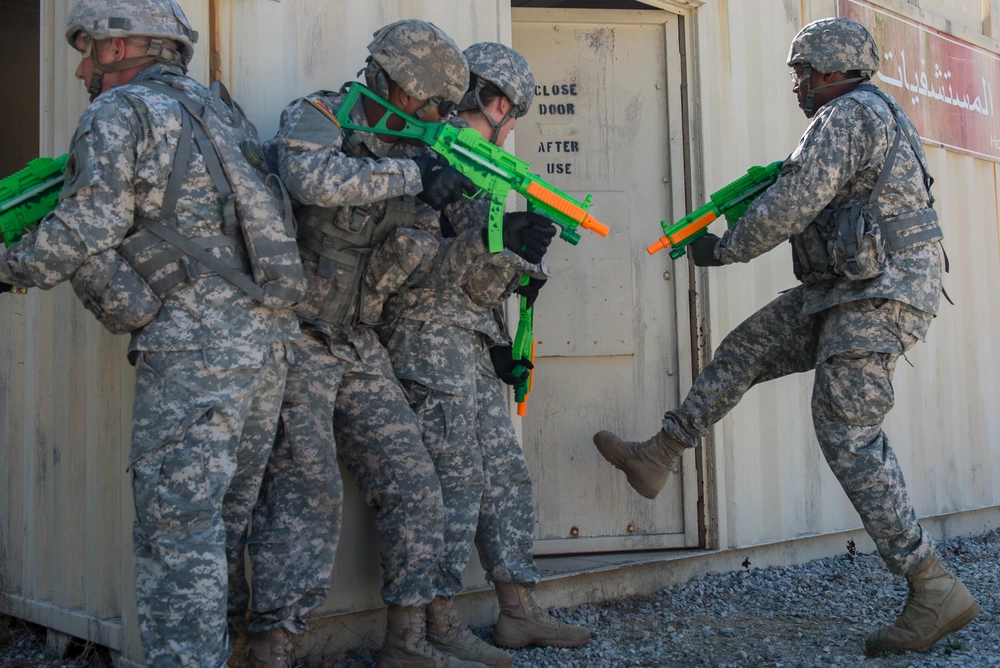Proposed Changes Could End Marijuana Testing For New Recruits

In 2025, the Federal Government could stop drug testing new recruits for marijuana, making it easier to join the military as a result.
In the past, in addition to broad DoD regulations regarding pot, the various branches of the military, including the Army, Navy, Air Force, and Space Force, have used service-specific marijuana policy to forbid marijuana use within the ranks. But lawmakers have introduced provisions into the 2025 defense policy bill to stop testing new recruits for pot altogether.
Military Pot Policy
If you serve in the military, you are not allowed to use medical or recreational cannabis. At least that’s the situation at press time pending further alterations to policy.
The individual services have, in the last decade, included a variety of changes to its recruiting policy over the years related to cannabis. Marijuana use was once a deal-breaker if you wanted to join, but in the 21st century, the Navy has stopped sending new recruits home when they arrive at boot camp and test positive for 420.
The Army has a second-chance policy offering another pot test within a specific time frame after failing the first one, and the Air Force also adopted a second-chance policy.
In 2024, some lawmakers want to relax pot prohibitions on all new recruits regardless of service branch, creating a DoD-wide policy.
Related: Veteran Education Benefits Guide
Defense Policy Proposal On Cannabis Use Among New Recruits
A draft of the 2024 defense policy bill includes a provision that would end testing for marijuana as a condition of joining as an officer or enlisted member. It would not, as understood at press time, end all drug testing in the military. It would also not end a prohibition on marijuana use in the ranks while serving, it’s a liberalized entry policy but does not allow those currently serving to start using cannabis in a similar way to alcohol.
This provision, like all the others in the policy bill for benefits, DoD spending, and related issues, is in the proposed stage only and has not been signed into law.
The proposal seeks to eliminate the current military recruiting idea that the recruit must, as far as pot is concerned, be “clean” and not actively using marijuana upon entry into military service. Most new recruits will get a drug test along the way at some point and may be drug tested again during basic training.
Under current recruiting policy, depending on the branch of service new recruits who test positive for marijuana must either get a waiver, take a retest, or stop the enlistment or commissioning process.
The proposed legislation would end the need for pot waivers at the recruitment level.
Times Are Changing
This move comes at nearly the same time the federal government has moved to reclassify marijuana as a Schedule III drug which places it in a less restricted category.
Some feel the move to end marijuana resting for new recruits comes at a time when there’s a lack of interest in military service. A pot prohibition is one of the barriers to serving some lawmakers want to remove.
How Prevalent Is Pot In The Military?
A study by the National Institutes of Health shows that a little over 7% of surveyed used cannabis while serving in the military. Among the veteran population surveyed some 20% acknowledged cannabis use.
There’s a school of thought that the military as a whole is a microcosm of America, or that it should be considered as such. In America 23 states have legalized recreational cannabis, and 38 states have some kind of medical cannabis program.
Some in the Senate oppose any liberalization of current drug policy, but these lawmakers are, according to some critics, hopelessly mired in the past and ignoring recent drug policy reforms such as the inclusion of a directive in the 2024 National Defense Authorization Act ordering the Pentagon to pay for a study on psychedelics as a potential treatment for traumatic brain injury and PTSD.
Related: Veteran Education Benefits Guide
About the author
Editor-in-Chief Joe Wallace is a 13-year veteran of the United States Air Force and a former reporter/editor for Air Force Television News and the Pentagon Channel. His freelance work includes contract work for Motorola, VALoans.com, and Credit Karma. He is co-founder of Dim Art House in Springfield, Illinois, and spends his non-writing time as an abstract painter, independent publisher, and occasional filmmaker.


